Marine Douglas Henry Stuart Hall, R.M. |
|
(1920-2000) |
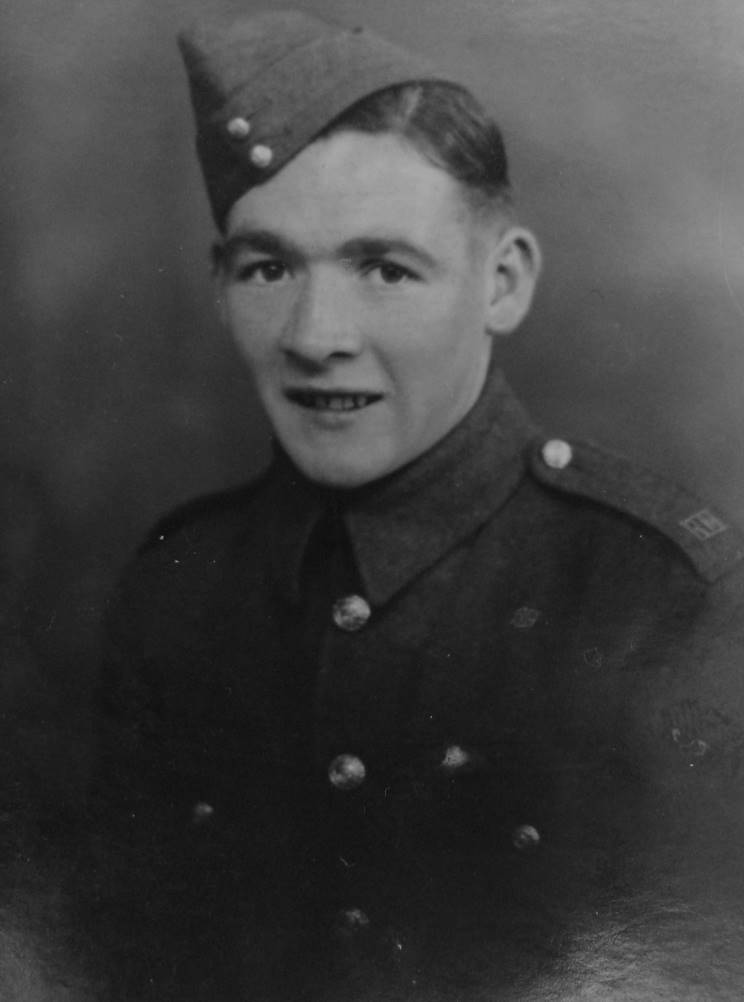 |
Douglas H. S. Hall, R.M. seen in a 1940 portrait. |
My Father, Marine D. H. S. Hall, also known as 'Knobby Hall' survived the sinking of the Prince of Wales to become a PoW on Sumatra. His action station on board the Prince of Wales was Port side Mess Deck No 24. Dad survived the sinking of the Prince of Wales and I now know he was taken back to Singapore with all the survivors from both the 'Prince' and 'Repulse'. He joined the remains of the 2nd Argylls and Southern Highlanders to form a composite battalion called The Plymouth Argylls where he defended the Radio Station at Kranji. Later in the battle of Singapore he was in action at Tengah Airfield and managed to escape from the Japanese onslaught eventually ending up back at Keppel Harbour. He managed to board a ship for Java but was captured at Banka Island by the Japanese and taken to Muntok. From Muntok he was taken upstream to Palembang on the island of Sumatra and was interned in various camps (Mulo School, Chang Hwa and Songei Geron) until the end of Sept 1945. Having read 'Prisoner of Nippon' by Ray Stubbs and 'No Bamboo for Coffins' by Elio Roberts I now have a comprehensive understanding of what life was like under the Japanese as both these authors were in the same camps. I also know he was in an Airfield Camp for 4 months extending a local airfield from which he eventually flew out from in a Dakota aircraft flown by an Australian crew when the prisoners were repatriated Sept 1945. Dad became a committed Christian after his return from the Far East and although he testified often in our local church he never mentioned his time on Sumatra. All of this information Dad never spoke about and has only come to my knowledge this last 12 months as I have been researching his past. Many thanks, Bob Bristol (Son) |
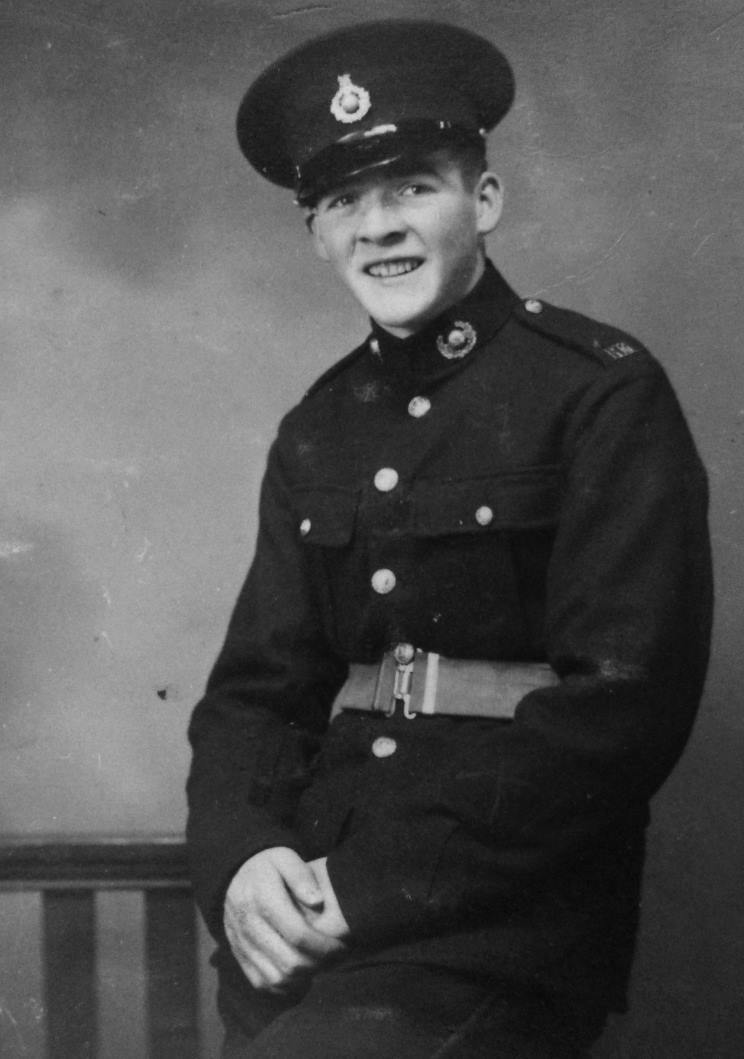 |
Another portrait of Douglas H. S. Hall, R.M. |
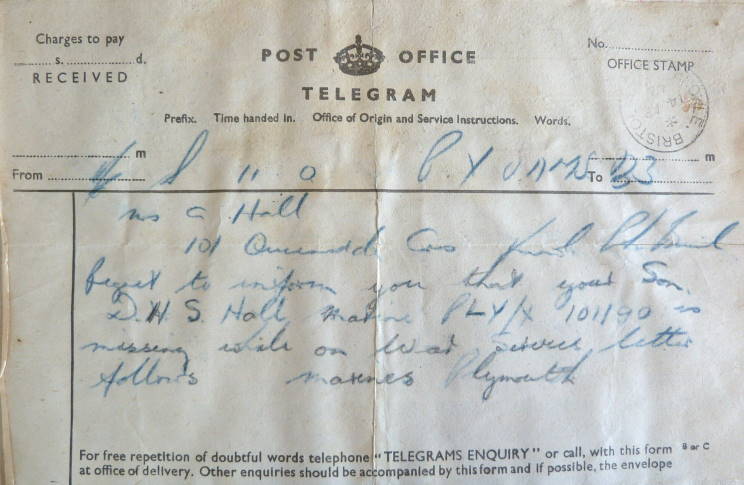 |
A telegram received by his parents notifying them that Douglas was missing while on war service. |
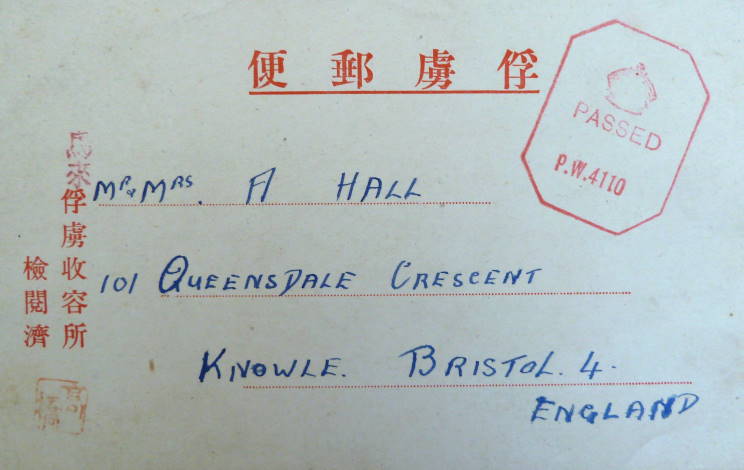 |
Postcard received by his parents from Douglas in a Japanese PoW camp. The undated card was the first time his parents knew that he was still alive. |
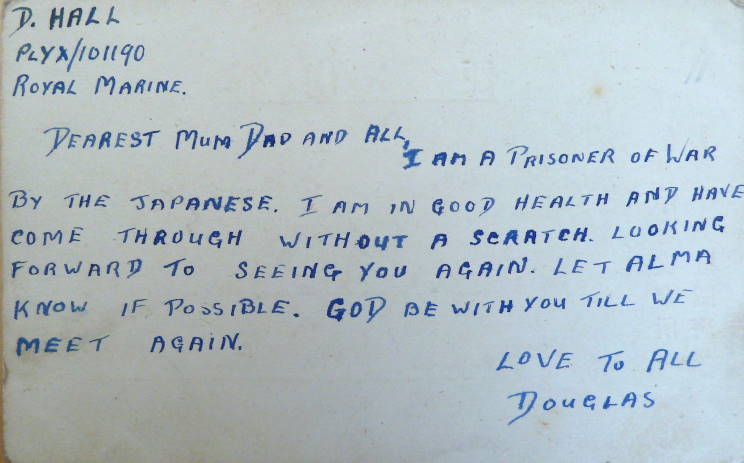 |
The note to his parents. This was the typical type of note allowed by the Japanese. |
 |
A postcard to Douglas from his mother showing the postmark Jan. 13, 1945. |
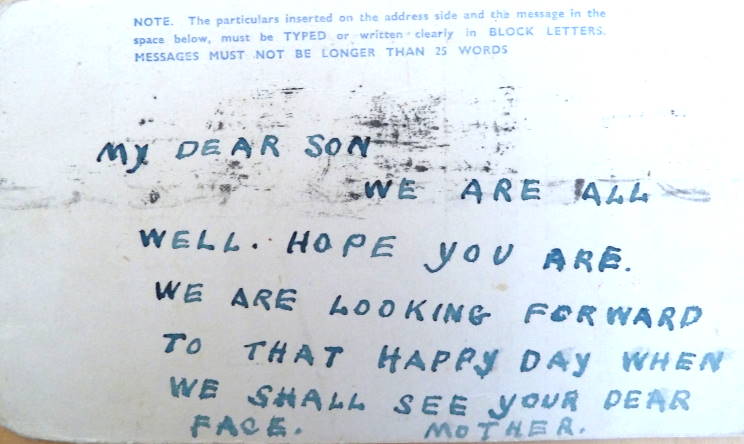 |
The note from his mother. Note the instructions at the top of the postcard. |
 |
The telegram received by his parents dated Sept. 21, 1945 notifying them that Douglas had survived captivity. |
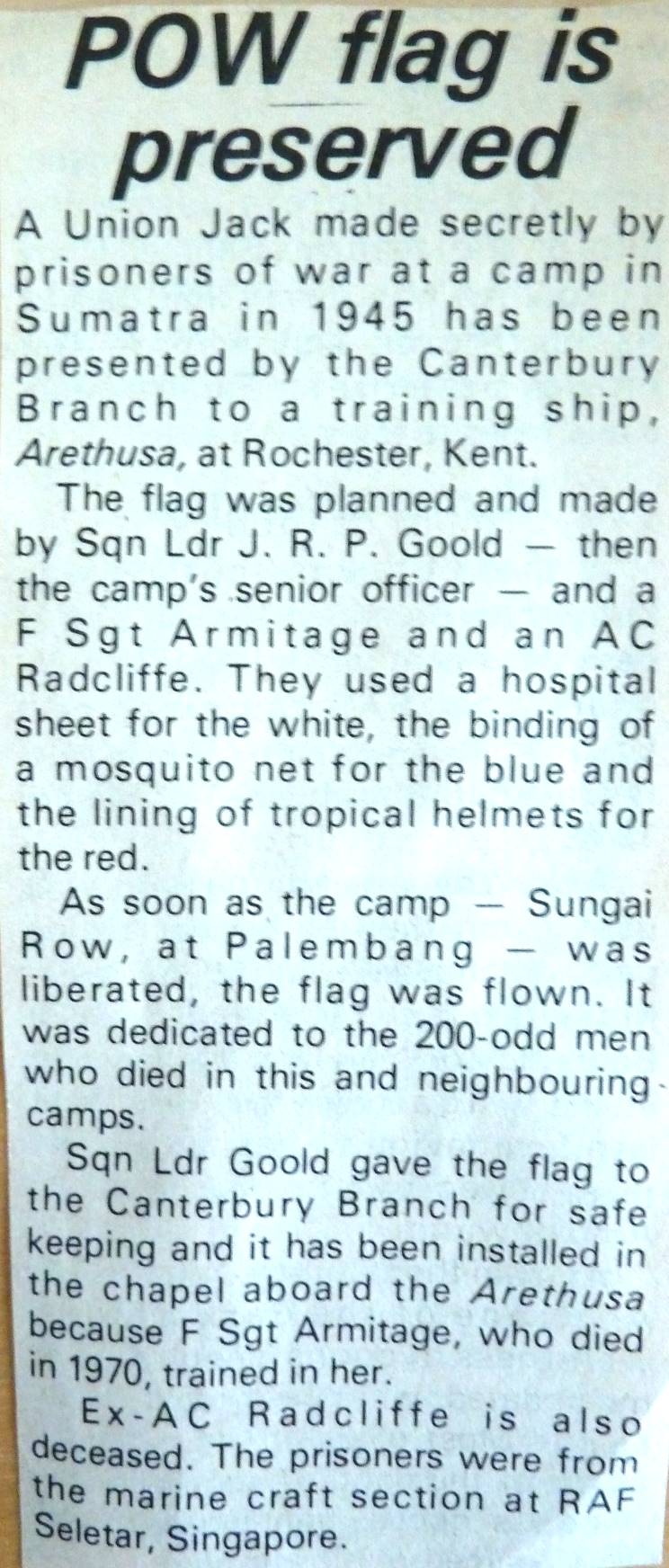 |
A 1945 newspaper article. |
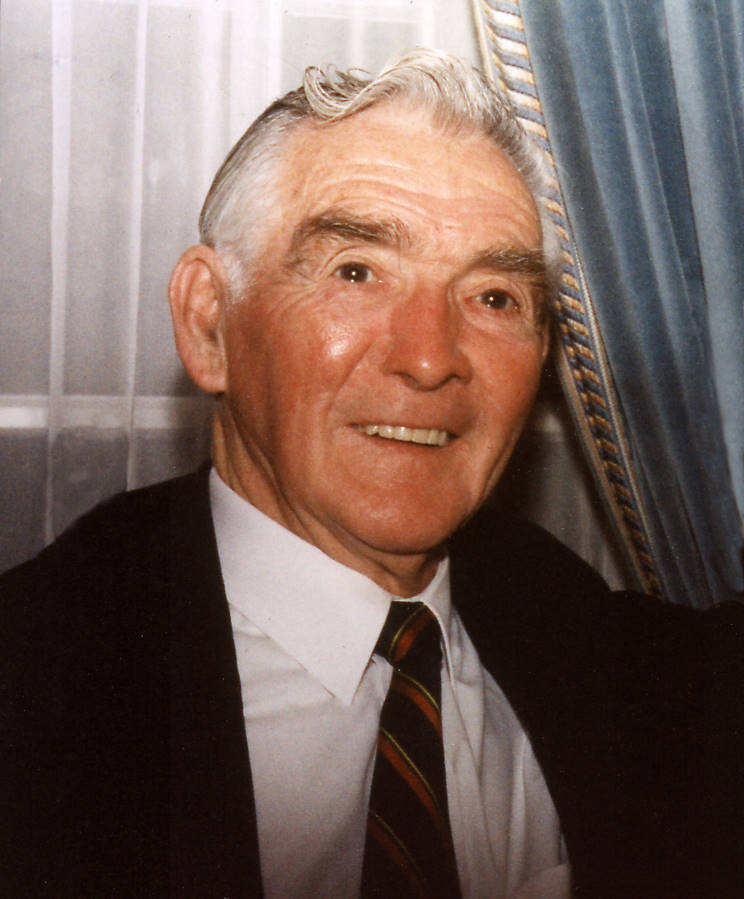 |
Douglas H. S. Hall seen in September of 1996. |
In 2013 the following poem was found tucked away in a Dutch school book. It appears to have been written by Douglas while a PoW in Chung Wha camp, Palembang, Sumatra around 1942. It is believed that this has never before been published. |
A ROYAL MARINE You have heard of the Army and Navy And the battles they fought and had seen But what of the man who is always there The 'bootneck' or Royal Marine And when the Navy weighs anchor And steams forth to sweep the seas clean Remember the man on a third of the guns Is that jolly old Royal Marine He was there at Narvik and Dunkirk In the last stand at Calais as well And fought in the fight for the island of Crete And went through a fiery hell The Battle of Oran and Cape Matapan He was there in all his glory He was present when the Bismarck sank And shocked the world with its story At Hong Kong there are strange tales to tell Of heroes unequalled before Then once again they honoured their name In the Battle for Singapore So when this war is over And all is calm and serene Don't forget when you tell your friends To mention the 'bootneck' or Royal Marine |
(Courtesy of Robert "Bob" Hall) |
Page published July 31, 2012 |